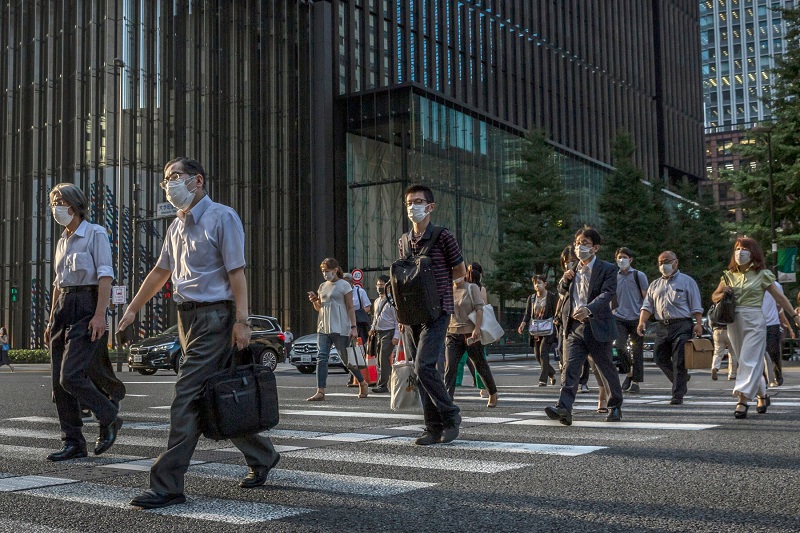Will COVID-19 pandemic eradicate the threat of deflation?
Years of monetary largesse by the Bank of Japan (and many other major central banks) has not been able to eradicate the threat of deflation. Could Covid-19 achieve what the central banks have failed to do?

It seems at first sight as if the pandemic might have made Japan regress towards the deflationary quagmire again.
Understandably, there is a lot of focus on those countries where inflation has soared; notably the US. Asset prices are very sensitive to Fed policy, and if there’s any sense that the central bank will have to tighten more quickly and/or lift rates to levels the market does not anticipate, then we can expect financial markets to have a torrid time. But what about those countries that don’t seem to be facing the threat of surging inflation as a result of the supply disruptions caused by the pandemic as well as the aggressive fiscal and monetary response?
Take Japan for example. Its inflation rate of -0.3% in July is lower than before the pandemic struck. For instance, in February 2020 it stood at 0.4%. It seems at first sight as if the pandemic might have made Japan regress towards the deflationary quagmire again. That’s a shame because one country in the world that could really use an inflationary boost from Covid seems to be getting the opposite. But this is not the whole story. For a start, sharp cuts in charges for mobile data have pulled the CPI down significantly in recent months and this impact will fall out of the annual comparison next spring.
Right now, it is thought that headline inflation would certainly be positive, if not above pre-pandemic levels, were it not for the slump in mobile charges (-39.6% in the year to July). On top of this, there are the pipeline pressures, in the PPI for instance, that suggest higher CPI prices ahead given margin pressure on firms. In July the annual PPI price index was rising at a 5.6% pace against just 0.7% in February 2020 before the pandemic really struck. Usually, bouts of significant producer price inflation are followed or even accompanied by higher CPI inflation. That’s not happened yet but the near six percentage point gap between the two suggests that firms will have to wear a lot of price – and profit - pressure if they refuse to lift the prices of things sold at the consumer level. This has been a problem in the past because firms have often found, or at least often suspected, that any price increases would induce consumer contraction.
Once a deflationary mindset takes hold it is incredibly difficult to shift. If people habitually expect that they can delay purchases because the price of whatever it is they want to buy will be lower in a year’s time than it is today. They are most likely to see their expectations fulfilled because firms are forced to react. If such price suppression happens again now the chances of the Covid-related supply disturbances lifting consumer inflation would seem pretty small. However, those things are necessarily bad. For a start, as demand comes bouncing back, once Covid concerns dissipate, consumers may prove themselves less sensitive to price increases. This does seem to be the case in some countries that are ahead of Japan in the Covidrecovery race.
Whether it will apply to Japan is questionable but Mr. Steve Barrow, Head of Standard Bank G10 Strategy thinks that there is a fair chance that it does. Another issue is that the stock market has performed poorly so far this year with the Nikkei up by just 0.7% compared to the 15.3% we have seen for the S&P 500 or the 17.4% for the Euro Stoxx 50. If this reflects somewhat deflated profit expectations for Japanese companies, the onus will be on them to try to push some price increases through. Of course, only time will tell if Covid has helped rid Japan of its deflationary tendencies. “We do think it probably stands a better chance than the sorts of efforts made by policymakers in the past. And that, in turn hints that JGB yields could well edge higher although it will still undoubtedly be some considerable time before the BoJ feels sufficiently emboldened to think about lifting rates”, Mr. Steve Barrow stressed.








